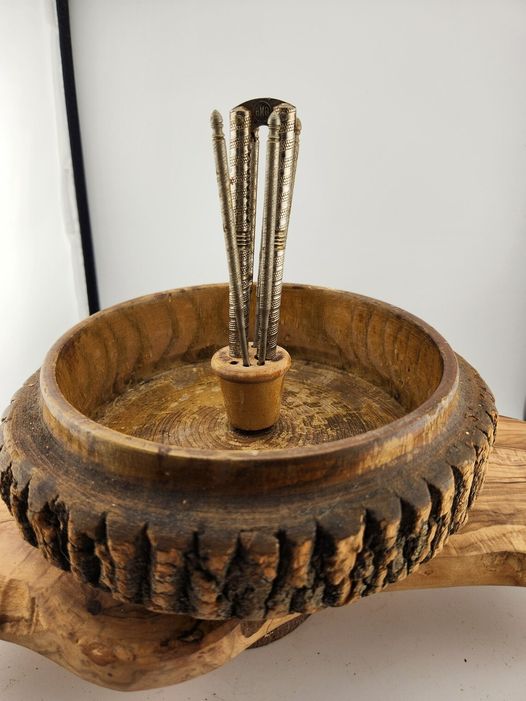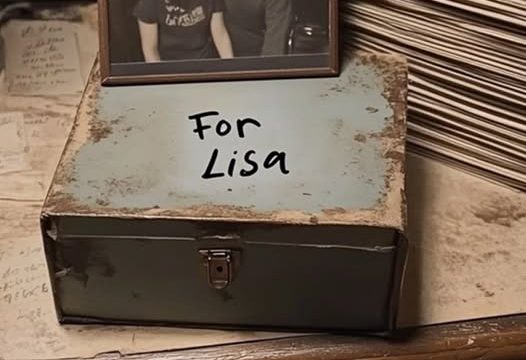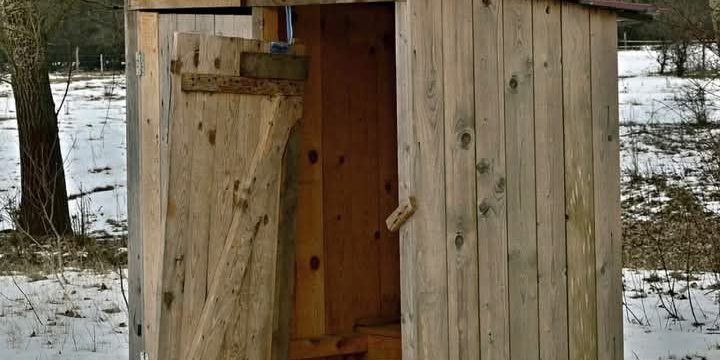
Exploring a grandparent’s attic often feels like stepping into a time capsule, unearthing relics from bygone eras. Recently, a young man stumbled upon a set of mysterious metal tools among his late grandparents’ belongings. Intrigued, he sought to uncover their purpose, leading to a fascinating discovery about vintage nutcrackers.
The Discovery: Unidentified Metal Tools
While sorting through his grandparents’ possessions, the young man found several metal sticks with pointed ends and textured grips. Neither he nor his friend could identify these peculiar items, prompting them to delve into research for answers.
Unveiling the Mystery: Vintage Nutcrackers
After some investigation, they learned that these metal tools were nutcrackers, likely dating back to the 1940s or 1950s. Unlike the decorative, lever-based nutcrackers many are familiar with today, these implements were designed for precision. They allowed users to extract the edible portions of nuts, such as chestnuts, without damaging the meat inside.
Design and Functionality of Mid-Century Nutcrackers
These vintage nutcrackers featured a straightforward yet effective design:
- Pointed Ends: Enabled users to pierce and pry open tough shells.
- Textured Grips: Provided a secure hold during the cracking process.
- Durable Metal Construction: Ensured longevity and resistance to wear.
Common Uses: Beyond Chestnuts
While particularly useful for chestnuts, these nutcrackers were versatile tools in mid-century households. They were often part of larger sets that included:
- Shellfish Crackers: For breaking open lobster and crab shells.
- Meat Picks: To extract meat from tight crevices in shells.
Aesthetic Appeal: Matching Wooden Bowls
Many of these nutcracker sets came with matching wooden bowls, sometimes designed to resemble chestnuts. These bowls served both functional and decorative purposes, holding nuts and discarded shells during family gatherings.
Nostalgia and Fond Memories
For many, such tools evoke memories of family traditions, holiday gatherings, and the simple pleasures of shared meals. They stand as reminders of a time when manual tools were essential in the kitchen, and communal activities centered around food preparation.
Preserving Family Heirlooms
Discovering these vintage items offers an opportunity to preserve family history. Here are some tips for maintaining such heirlooms:
- Cleaning: Gently clean metal tools with a soft cloth to remove dust and prevent corrosion.
- Storage: Keep them in a dry environment to avoid rust and deterioration.
- Display: Consider showcasing them in shadow boxes or display cabinets as a tribute to family heritage.
Conclusion: A Glimpse into the Past
Uncovering these vintage nutcrackers not only solved a personal mystery but also provided a tangible connection to the past. They highlight the ingenuity of mid-century kitchen tools and the traditions that brought families together. Such discoveries remind us of the importance of preserving and cherishing the artifacts that tell our family’s stories.





